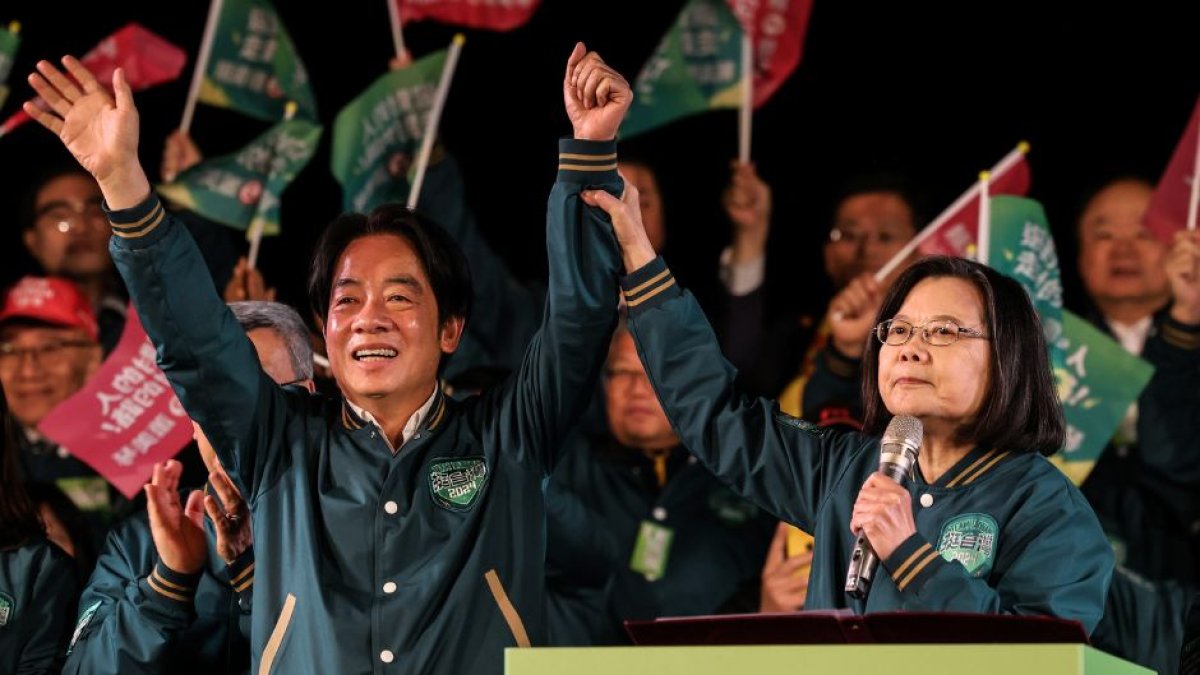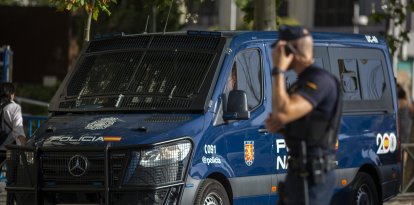Taiwan Voters Just Cut China's Xi Jinping Down to Size
The Taiwanese, especially after seeing how Beijing suffocated Hong Kong in the past four years, do not want to be ruled by the Chinese regime.

(Cordon Press)
The results are in. Taiwan's voters stood up to China and all its war talk of recent weeks.
Vice President Lai Ching-te of the Democratic Progressive Party won the presidency on Saturday in a three-way race with 40.1% of the vote. Hsiao Bi-khim, recently Taipei's representative in Washington, was elected vice president.
New Taipei City Mayor Hou Yu-ih, of the opposition Kuomintang received 33.5%, and Ko Wen-je of the new Taiwan People's Party came in third with 26.5%.
The election was historic. For the first time since 1996, when the island republic held its first democratic presidential election, a party has won a third straight presidential term.
Previously, the DPP, as the governing party is known, and the Kuomintang or KMT, traded the presidency every eight years.
Consistently more than 60% of the island's 23.5 million people self-identify as "Taiwanese Only."
Lai's campaign was ailing a few weeks ago as voters were expressing dissatisfaction with DPP governance on bread-and-butter issues. Then Beijing decided to weigh in, calling the vice president a "separatist" and "destroyer of peace." As a result, ethnic Taiwanese voters began to focus on their ethnicity and the China threat.
The "Green" DPP represents people who think of themselves as "Taiwanese." Consistently more than 60% of the island's 23.5 million people self-identify as "Taiwanese Only"—some polls show over 80%—while generally fewer than 5% say they are "Chinese Only."
Hou's "Blue" Kuomintang fled to Taiwan in 1949 as it was losing the Chinese Civil War and is seen as the party of the ethnic Chinese on the island. Many still consider them to be invaders, especially after the Kuomintang's brutal "White Terror," a four-decade campaign waged against the local—Taiwanese—population.
Beijing proclaims that Taiwan is an inalienable part of the People's Republic of China and now favors the KMT, because, as a practical matter, China's peaceful annexation of the island is possible only when Taiwan's people believe they have a common heritage with those on the "mainland."
Beijing's war talk—a senior Chinese official declared this month that the Taiwan election presented a choice between "peace and war"—only reminded the electorate that, despite unhappiness with the DPP, the governing party was best able to maintain Taiwan's separate existence. The Taiwanese, especially after seeing how Beijing suffocated Hong Kong in the past four years, do not want to be ruled by the Chinese regime.
Native Taiwanese are beginning to dominate politics and have different aspirations than the Chinese.
Lai's margin on Saturday is larger than that in the polls released just before the 10-day polling blackout period went into effect. He can thank the KMT's Ma Ying-jeou for helping him increase his then-slim lead in the days before the voting. Ma, a former president, in a televised January 10 interview with Deutsche Welle essentially advocated capitulation to Beijing and told Taiwan's people that they could trust Xi Jinping.
"The timing is very unfortunate for the Hou campaign," said Ma Chun-wei of Tamkang University in New Taipei City to Singapore's Straits Times. "If Ma had said what he said two months ago, people might have moved on from it by now. But to say these things just a few days before the election will likely cost the party crucial median voters."
Ma Ying-jeou, president from 2008 to 2016, undoubtedly scored points with the 1.6% of voters who want immediate unification with China, but certainly not anyone else.
The former president, who had been campaigning for Hou, was not invited to the most important KMT campaign event, a rally held the day before the election in New Taipei City.
Hou, by not including Ma, was trying to reassure voters that he was not going to sell out Taiwan to China. His message throughout the campaign was that he was the best able to handle China and maintain the island's democracy.
Unfortunately for the KMT, it has to appeal to both the Chinese in Taiwan, its core base, and native Taiwanese, who are beginning to dominate politics and have different aspirations than the Chinese.
The people of the small island of Taiwan are not afraid of large China.
Xi Jinping at the moment must be fuming. In his 2024 New Year's message, he signaled he is soon going to annex Taiwan. "China will surely be reunified, and all Chinese on both sides of the Taiwan Strait should be bound by a common sense of purpose and share in the glory of the rejuvenation of the Chinese nation," the Chinese leader declared in a paragraph that appears to list what will happen this year.
China has overplayed its hand. "I think the people here are accustomed to the endless threats coming from China," said Bob Yang, a retired professor and a former president of the pro-Taiwan Formosan Association for Public Affairs, to Gatestone. "They seem to take them in stride."
As Yang, now in Taiwan after campaigning for DPP candidates, tells us, China's threats are wearing thin. A free people, living just a little over a hundred miles from the menacing Chinese state, refuse to be intimidated.
The Taiwanese heard Xi Jinping's threats, became even more defiant, and have now cut him down to size.
The people of the small island of Taiwan are not afraid of large China. They are an inspiration to free people everywhere.

























